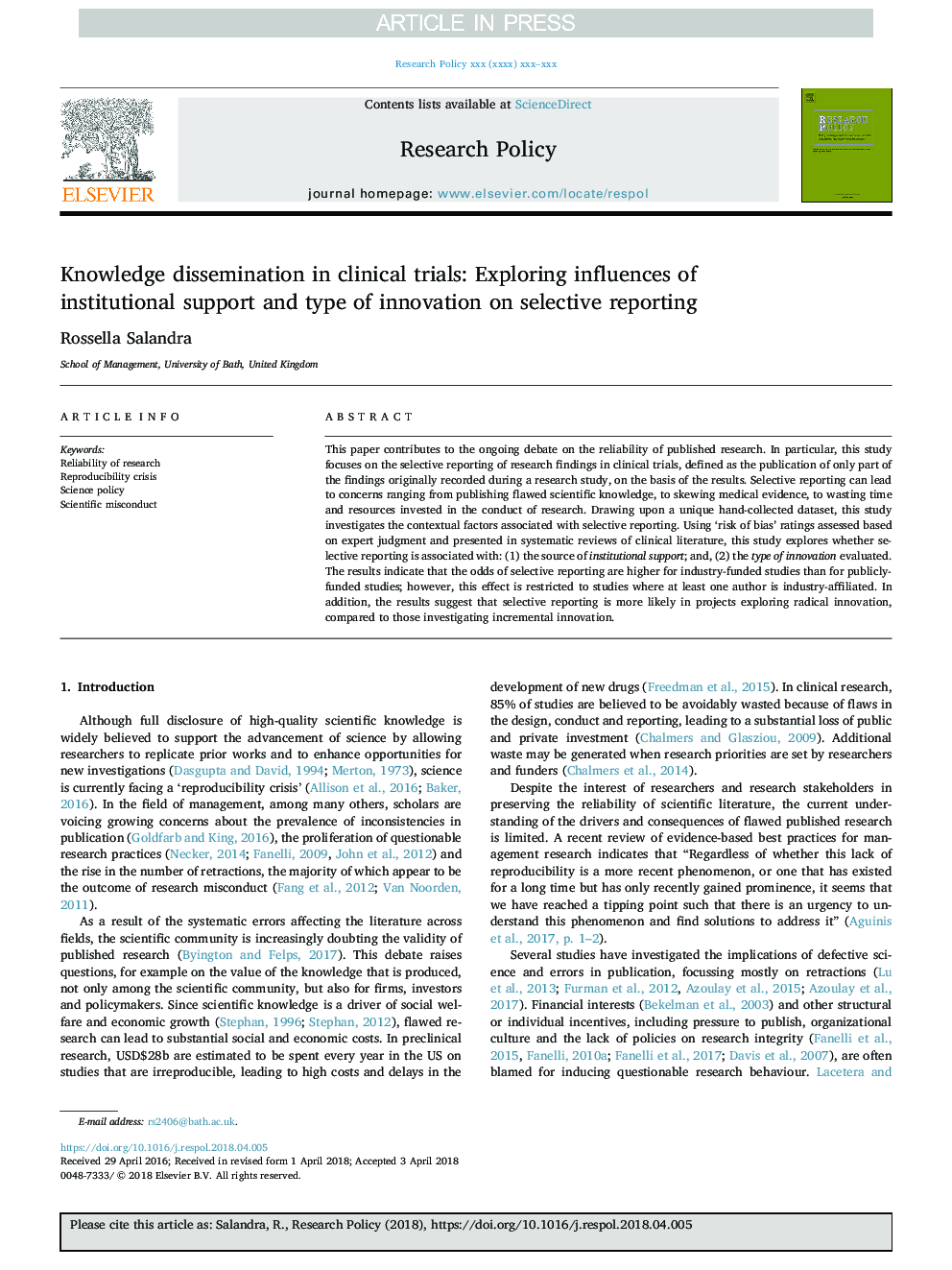| Article ID | Journal | Published Year | Pages | File Type |
|---|---|---|---|---|
| 7384289 | Research Policy | 2018 | 14 Pages |
Abstract
This paper contributes to the ongoing debate on the reliability of published research. In particular, this study focuses on the selective reporting of research findings in clinical trials, defined as the publication of only part of the findings originally recorded during a research study, on the basis of the results. Selective reporting can lead to concerns ranging from publishing flawed scientific knowledge, to skewing medical evidence, to wasting time and resources invested in the conduct of research. Drawing upon a unique hand-collected dataset, this study investigates the contextual factors associated with selective reporting. Using 'risk of bias' ratings assessed based on expert judgment and presented in systematic reviews of clinical literature, this study explores whether selective reporting is associated with: (1) the source of institutional support; and, (2) the type of innovation evaluated. The results indicate that the odds of selective reporting are higher for industry-funded studies than for publicly-funded studies; however, this effect is restricted to studies where at least one author is industry-affiliated. In addition, the results suggest that selective reporting is more likely in projects exploring radical innovation, compared to those investigating incremental innovation.
Keywords
Related Topics
Social Sciences and Humanities
Business, Management and Accounting
Business and International Management
Authors
Rossella Salandra,
